
There will be six Pre-Congress Symposiums taking place on Thursday 15 June 2017 and these will be held at the Adelaide Convention Centre.
All symposiums are full day programs and will commence at 10am and conclude at approximately 4pm. Numbers are limited for each symposium so register early to avoid disappointment.
Please click on the symposiums below to read more details.
Advanced Practice Palliative Care
Vascular Access - Improving Treatment by Enhancing Quality
Radiation Oncology - A multi disciplinary approach
Evolving Role of the Cancer Nurse in Patient Assessment
Professional Career Skills for Cancer Nurses
Advanced Practice Palliative Care
Time: 1000 - 1600
Description:
This symposium focuses on the issues and symptoms commonly associated with advanced malignancies. Leading oncology and palliative care physicians will explore the anatomical insults of advanced malignancies, giving reason and understanding to the symptoms that these malignancies produce. Delegates will gain insights into optimal symptom management and the vital role that advanced care planning has in preparing for end of life. This is a symposium not to be missed for cancer nurses working in oncology, haematology, breast cancer care and palliative care who want to gain greater knowledge of optimal management of people with advanced disease.
Supported by:
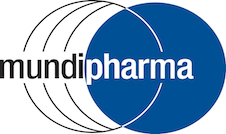
Click here to download the symposium program
Vascular Access - Improving Treatment by Enhancing Quality
Time: 1000 - 1600
Description:
Reliable central venous access devices (CVADs) are integral to cancer treatment. However, many cancer patients will develop mechanical or infective complications from their device. This results in treatment interruption, patient dissatisfaction as well as increased risk of morbidity and mortality.
In the Vascular access: improving treatment by enhancing quality workshop, leading Australian researchers and clinicians will present the latest evidence to inform clinical practice in cancer care. The workshop will consist of both lecture style presentations and practical, hands-on sessions. Topics include occlusion management and planning vascular access to allow immediate and future cancer treatment. The interactive sessions will introduce you to new technology relevant to both CVAD inserters and cancer nurses. Additionally, these sessions will provide practical strategies to trouble-shoot adverse events such as occlusion and the use of technology to monitor adverse events. Finally, an interactive session with a panel of researchers and clinicians will focus on the importance of all clinicians championing for appropriate CVAD use and management in the cancer population. This panel will encourage cancer clinicians to collect CVAD outcome data to manage complications and improve patient outcomes at their own cancer centre and ultimately allow for benchmarking.
Supported by:
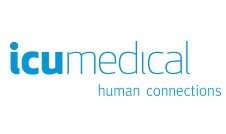
Click here to download the symposium program
Radiation Oncology - A multi disciplinary approach
Time: 1000 - 1600
Description:
Radiation therapy can be the first, last, concurrent and sometimes only treatment modality in the treatment of people diagnosed with cancer. It can be used in all cancer types with both a radical and/or palliative intent. Radiation therapy can impact on all aspects of a patient/families life and requires a multidisciplinary team of healthcare professionals to support them.
This workshop aims to introduce some of these team members and understand their roles and relationships in caring for patients undergoing radiation therapy to enhance patient care, patient experience and patient outcomes.
The workshop will explore special considerations when undergoing radiation therapy for:
- Head & Neck cancer (sexuality/body image, nutrition/hydration, oral care)
- Prostate cancer (sexuality, erectile dysfunction, continence)
- Gynaecological/Breast cancer (lymphodema, sexuality/sex)
- Late effects of radiotherapy
- Skin care – trials with mepitel film
Supported by:
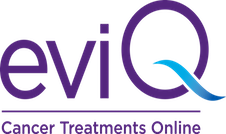
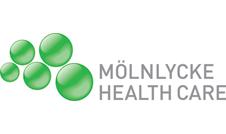
Click here to download the symposium program
Evolving Role of the Cancer Nurse in Patient Assessment
Time: 1000 - 1600
Description:
This seminar focuses on the contemporary role of the cancer nurse in the assessment of patients during treatment for malignancies. The skills and knowledge required to make a nursing diagnosis and formulate complex nursing care plans to improve patient outcomes have now become the domain of all nurses caring for people with cancer.
The seminar will start with the importance of tissue and the histopathology findings before presenting the common blood tests and their parameters for treatment including when to worry and when to escalate.
Expert speakers will present the aspects of medical imaging that cancer nurses need to understand and will workshop images for diagnosis and staging of the common cancers with attendees.
The afternoon speakers will provide insights into the clinical skills required to recognise and respond to the deteriorating patient with a focus on neutropenic sepsis and the seminar will conclude with a comprehensive overview of nursing history and physical assessment in the contemporary cancer treatment setting. This seminar will benefit all nurses in the clinical environment who care for people with cancer from the novice to expert.
Supported by:
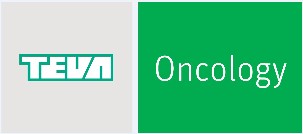
Click here to download the symposium program
Professional Career Skills for Cancer Nurses
Time: 1000 - 1600
Description:
The skills, knowledge and attributes encompassed in this symposium promote the development of leadership skills and attributes across all nursing practice settings. Nurses attending will; gain an increased awareness of professionalism in the context of cancer nursing, be able to promote the role of nurses across interprofessional health care settings and be empowered with strategies to improve leadership skills and attributes. Participants will recognise how leadership skills are effectively used to attain power and influence change regardless of level of practice. Facilitators will focus on the development of emotional intelligence, self-awareness and resilience whilst engaging participants in understanding how this impacts human performance, leadership, team and organisational outcomes.
Supported by the CNSA WA and SA Regional Groups
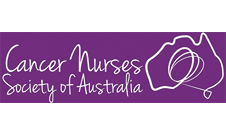
Click here to download the symposium program
Generating evidence for effective models of survivorship care in cancer: a workshop for new and early career researchers
Time: 1000 - 1600
Description:
The aim of this 1-day workshop is to help specialist cancer nurses and PC4 early career researchers develop persuasive 1-page collaborative research concept outlines to advance evidence to support models of survivorship care in cancer.
Persuasive concept outlines are an essential starting point for writing study protocols, letters of intent to industry, or grant applications to funding bodies. The workshop is open to members of CNSA and PC4 who are keen to enhance evidence for survivorship models and develop their research skills. The workshop will be limited to 30 participants.
Participants in the workshop are asked to come with an idea for a clinical research study that focuses on an aspect of survivorship care in cancer and should be prepared to discuss their idea for a proposed clinical cancer research study with other workshop participants and seek collaboration to progress their research ideas. Workshop facilitators will help participants leave with a persuasive 1-page concept outline.
Survivorship care is a broad construct and ideas focusing on any of the domains featured below (Figure 1) are relevant and welcome on the day.

Figure 1: The Survivorship Spectrum(adapted from: Emery, J. D. et al. Nat. Rev. Clin. Oncol. advance online publication 19 November 2013; doi:10.1038/nrclinonc.2013.212)
The workshop program includes short presentations, written exercises, and small group discussions. The workshop is based on the highly successful ACORD* Protocol Development program and participants who attend this workshop will be encouraged to put forward their concepts as part of an application to attend a 1-week ACORD Protocol Development Workshop in September 2018.
*The ACORD Protocol Development Workshop is a 1-week, intensive, interactive, problem-oriented, training program focused on the essentials of cancer clinical trials research. It is aimed at early career clinicians and workshops have been held every 2 years since 2004. The main goals of the program are to train early career oncology clinicians in excellent clinical research methods; to turn good ideas into successful clinical cancer research protocols; to foster multidisciplinary collaboration and facilitation of clinical trials and research and improve the quality of clinical cancer research and patient care.
*With thanks to the ACORD Faculty for generously sharing resources and ACORD workshop materials
Supported by CNSA and PC4

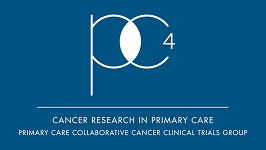
Click here to download the symposium program

